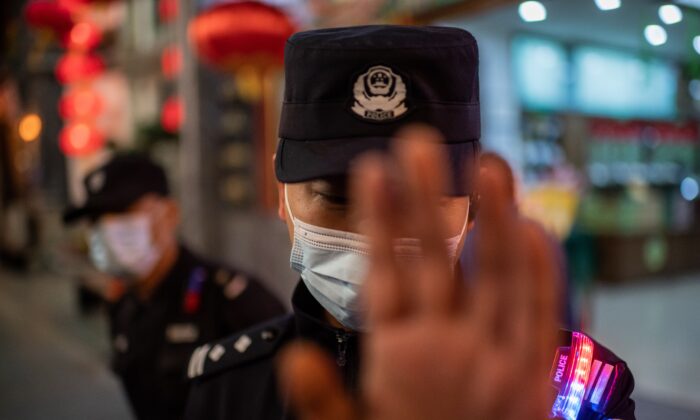As the world reels from the pandemic, the Chinese regime has become the leading force in suppressing internet freedom and censoring critical views that challenge the official narrative, according to a report by a U.S.-based think tank.
Freedom on the Net, an annual report by Freedom House that assesses digital surveillance in 65 countries, named Beijing as the worst abuser of digital freedom for the sixth consecutive year.
While online critics have faced charges or arrests in 45 countries over pandemic-related speech, and 28 governments have censored online posts containing unfavorable virus content, “[n]owhere has censorship been more sophisticated and systematic than in China,” according to the report.
Automated deletions, mass content removals and account closures, deployment of trolls, and arrests, along with other policing tools the regime has deployed to tighten control over virus-related information, reflect a surveillance state at its “unprecedented extremes,” the report said.
“The pandemic is normalizing the sort of digital authoritarianism that the Chinese Communist Party has long sought to mainstream,” the research institute said in an Oct. 14 statement.
 People wearing face masks as a preventive measure against the Covid-19 coronavirus wait at a red light to cross a street during rush hour in Beijing on Oct. 14, 2020. (Nicolas Asfouri/AFP via Getty Images)
People wearing face masks as a preventive measure against the Covid-19 coronavirus wait at a red light to cross a street during rush hour in Beijing on Oct. 14, 2020. (Nicolas Asfouri/AFP via Getty Images)Controlling Outbreak Coverage
Beijing’s increased suppression during the critical period of the outbreak affected hundreds of millions of internet and mobile phone users and forced citizens to self-censor, the report found.
The Cyberspace Administration of China, the country’s top internet regulator, closed down 816 websites and deleted 33,000 social media accounts or chat groups in the first quarter of 2020 for posting information that it found problematic, according to the report. The same office later launched a two-month campaign to remove more than 6,000 online articles and 18,500 accounts across three regions, including Beijing, Shanghai, and Guangdong.
The growing demands for content control have boosted demand for companies that hire internet censors—so-called “censorship factories”—and artificial intelligence-assisted censorship, the report noted.
The Epoch Times reported in February that Hubei Province had activated more than 1,600 internet trolls to take down virus-related “sensitive” information online. The censors were tasked with monitoring the digital space 24/7 to delete what they deemed as “rumors” and post comments praising the government, a leaked document shows.
People.cn, the online version of state media People’s Daily, has supplied automated censorship services to other Chinese websites and apps. Its chairman predicted the censorship industry will grow to employ one million people in three to five years, the report said.
The regime’s propaganda department in February also dispatched hundreds of reporters from state-run news agencies to Hubei, the province where the capital, Wuhan, became the epicenter of the country’s outbreak. A former pro-Beijing media journalist, citing sources in China, told The Epoch Times that the press corps’s top priority was to avoid negative coverage and strictly tread the party line.
“The party does not solve the problem, but rather attempts to get rid of those who raised the questions,” he said. “And to solve the problem means to control public opinion.”
Citizens who overstepped the boundary by provoking the regime often drew immediate retaliation. Li Wenliang, the whistleblower doctor who warned about the contagion’s risk on social media before the government acknowledged the outbreak, was reprimanded and forced to sign an apology. A string of citizen-journalists who took risks to supply on the ground information from Wuhan also disappeared.
The pressure to limit unfavorable content extends to companies based both domestic and overseas.
WeChat, the popular Chinese social media app, was found to be running a blacklist of about 2,200 keywords related to COVID-19 between Jan. 18 and May 14, according to an analysis by Canadian-based research center Citizen Lab. The keywords evolved over time and gradually shifted from early warnings to domestic criticism over Beijing’s virus response and mask diplomacy.
Authorities have also resorted to intimidation and violence to discourage internet criticism. In Hunan Province, a practitioner of the persecuted spiritual group Falun Gong went into hiding after police pursued her for putting up posters containing a QR code that gives people access to overseas websites with information about the pandemic.
Focus News: Beijing Exploits Pandemic to Intensify Internet Surveillance, Report Finds
Russia Investigation Official Bruce Ohr Resigned From DOJ: Spokeswoman
